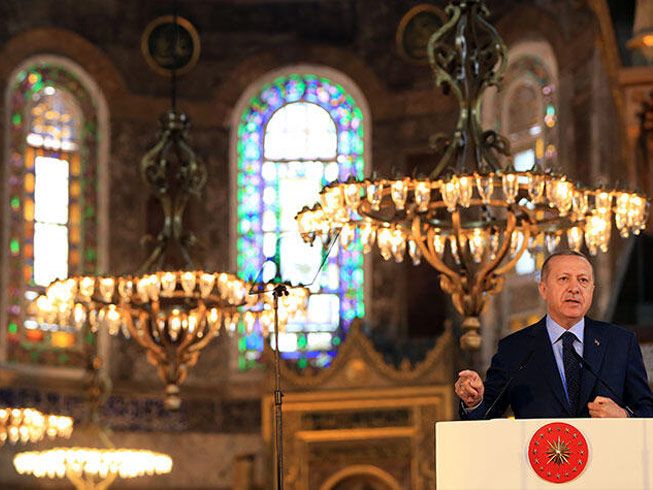Centuries of heritage belonging to Christians and other minorities in Turkey are under threat following the agreement of new import restrictions between the U.S. and Turkey, according to Armenian and Christian groups.
They have condemned as “reckless” and “a travesty” the bilateral memorandum signed by the Trump administration in its final hours, whereby the U.S. has agreed to place import restrictions on heritage objects from Turkey and to repatriate “trafficked” cultural property. This, in effect, places the care and control of the vast heritage of all cultural, religious and ethnic groups in the hands of the Turkish government, which has a long track record of “destroying minorities” and their holy sites, even to the point of “erasing their memory from the landscape of their ancient, indigenous homelands,” in the words of Armenian leader Aram Hamparian.

The Christian presence in Turkey predates Islam by many centuries. The territory was home to the “Seven Churches which are in Asia” (mentioned in Revelation 1:4), and Cappadocia, in central Anatolia, is a region where early Christians took refuge from Roman persecution.
The Association of Art Museum Directors (AAMD) issued a statement on January 21 that highlighted its concerns over the agreement which comes under Article 9 of the 1970 UNESCO Convention (the “MOU”). The AAMD described Turkey’s request for international cooperation against the illicit trafficking of cultural property as “troubling” and explained that “for many types of cultural property, a MOU will not curb looting and destruction because those actions are being carried out by the Turkish state itself.”
Aram Hamparian, executive director of the Armenian National Committee of America (ANCA), said it was “reckless and irresponsible” to place the vast religious and cultural heritage of the Armenians, Greeks, Assyrians, Chaldeans, Syriacs, Arameans, Maronites, Jews and Kurds into the hands of Turkey, which, he said, has “openly, unapologetically and systematically spent the past two centuries destroying minorities, desecrating their holy sites, and erasing even their memory from the landscape of their ancient, indigenous homelands.”
Endy Zemenides, executive director of the Hellenic American Leadership Council, describes the new memorandum as “a travesty.” He added, “Those that participated in the signing of the agreement are potentially complicit in the continuation of Turkey’s oppression of its Christians.”
Toufic Baaklini, president of the advocacy group In Defence of Christians (IDC), slammed the agreement as a “shameful stamp of American approval on the destruction of Christian cultural heritage in Turkey.”
The three organizations, whose concerns are echoed by a number of cultural rights and museum bodies, pledged to work with the new Biden administration to ensure the agreement is used to protect Christian heritage in Turkey.
In July 2020, Turkey’s Islamist president, Recep Tayyip Erdogan, ordered the world-renowned Hagia Sophia cathedral in Istanbul to be turned from a museum into a mosque, a decision that was opposed by the World Council of Churches, and “deeply regretted” by world heritage watchdog UNESCO. A month later, Erdogan gave the go-ahead to changing the St. Saviour in Chora Church building in Istanbul, which was also a museum, into to a mosque. Erdogan has been outspoken about his desire to recreate the Ottoman Empire. Repression of religious minorities and hostility toward Christians has increased in recent years in Turkey, with the rise of Erdogan’s AKP party.

